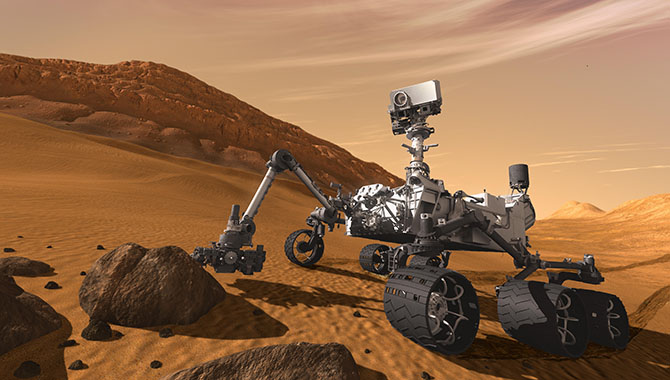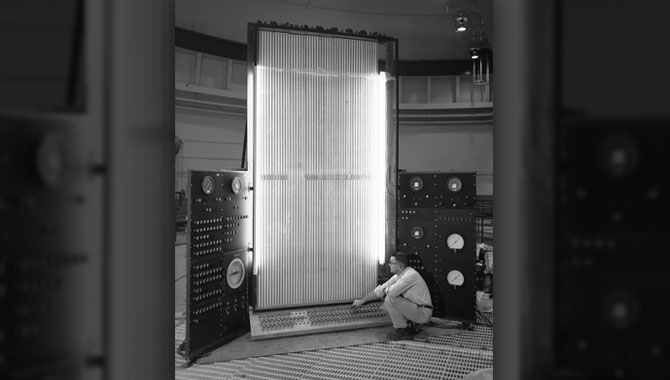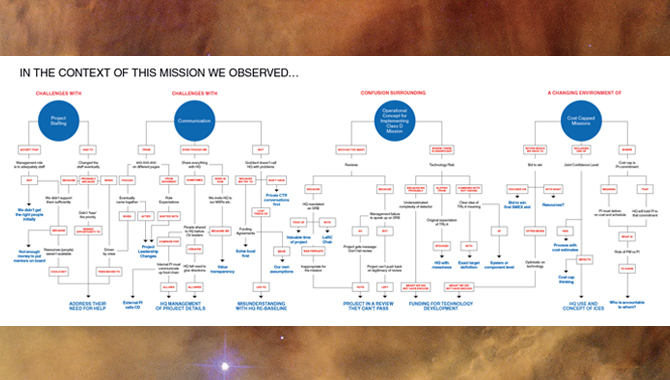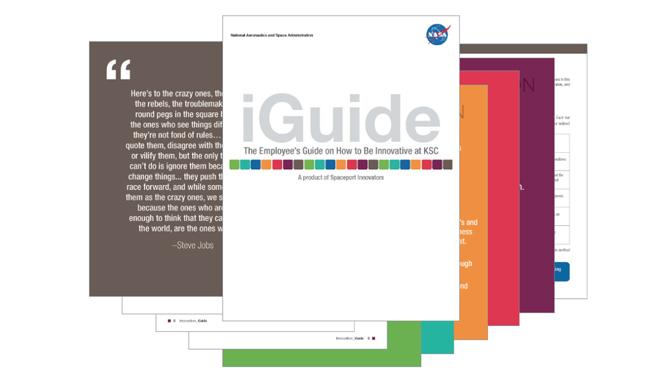
Many people think of knowledge management as lessons learned databases and other online tools for locating expertise. Such online tools are indeed one valuable category of an organization’s resources, practices, and processes for capturing and sharing knowledge, but they are only one of many. It is my hope that the articles in this new journal will give some sense of the variety and scope of knowledge services and activities at NASA.
Databases, repositories, archives, and other online sources preserve and make accessible expertise over time. At NASA, where almost everything is built on learning from missions, the value of most projects and programs can last for many years if they are advanced (and updated) by communicative teams committed to sharing what is being learned. What is at the heart of knowledge services is gaining know-how and know-what from practitioners reflecting and sharing stories and insights at the core of their knowledge.
Too often, though, critical knowledge is omitted or cannot be fully captured in documents, and it is difficult to understand knowledge out of context. We have all experienced moments when finding what you are looking for may seem difficult or impossible.
This first issue of the NASA Knowledge Journal focuses on real work being done at NASA to overcome these challenges. The first article describes the successes of our video channel JPL Tube, with a new feature providing keyword searching. A related article follows the innovations around search and accessibility, illustrating the importance of search methodologies and data driven visualization.
Much expertise, especially the subtleties of how to carry out complex work, can only be effectively shared person-to-person, by working together or talking together, despite all our best technological advances. Goddard Space Flight Center’s Pause and Learn sessions are an important example of the power of face-to-face knowledge sharing. Similar stories shared here include those on physical space for sharing, such as Spaceport Innovators at Kennedy Space Center, and Goddard Space Flight Center’s process of learning from the cancellation of GEMS.
The motivation for people to capture, transfer, and apply knowledge is crucial to any knowledge sharing enterprise. The effectiveness of intrinsic vs. extrinsic rewards for sharing knowledge remains central to achieving our goals. It is part of what makes a healthy knowledge culture, which includes sharing stated goals, recognition of contribution, mutual trust, and tolerance for and recognition of the value of mistakes. This journal addresses those challenges. NASA remains at the leading edge of computation, as a concluding article shares what IBM’s Watson, a supercomputer, is realizing at Langley Research Center.
What is captured in this journal is representative of what NASA is doing well now and has done in the recent past. For more on knowledge services at NASA, please visit our website km.nasa.gov and follow NASAKnowledge on Facebook and Twitter.
Warmly,
Ed Hoffman
NASA Chief Knowledge Officer









